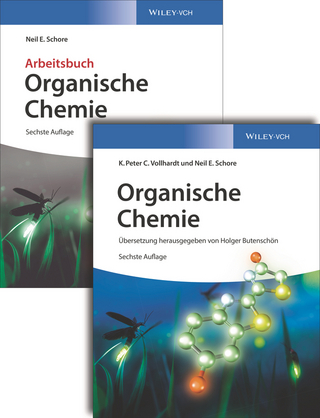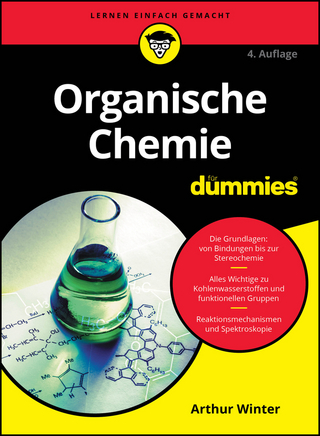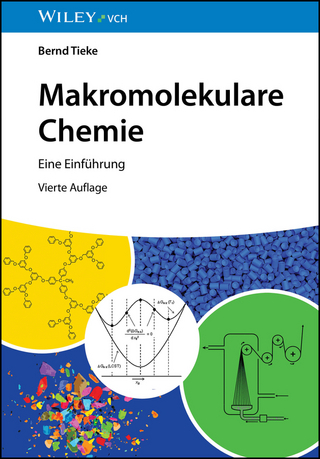
Catalyst Deactivation
Elsevier Science Ltd (Verlag)
978-0-444-81682-5 (ISBN)
- Titel ist leider vergriffen;
keine Neuauflage - Artikel merken
Catalyst Deactivation 1994 was an expansion of earlier, highly successful symposia. The objective of the symposium was to promote a scientific approach of the phenomenon of catalyst deactivation which will contribute to the development of catalysts which are less subject to structural transformations and more resistant to poisons and coke formation. These aspects are dealt with in 12 plenary lectures, 48 oral presentations and 35 poster papers, which were critically selected from an impressive response from some 30 countries. Both fundamental and applied aspects were covered. The deactivation of catalysts in important industrial processes like fluid bed catalytic cracking hydrotreatment, hydrodesulphurisation, catalytic reforming, hydrodenitrogenation, steam reforming, hydrodemetallisation, hydrocracking, Fischer-Tropsch synthesis, propane dehydrogenation, phthalic anhydride synthesis received considerable attention. Mechanisms of poisoning, sintering and coking were further investigated and modelled and new experimental techniques for the characterisation and the quantification of deactivation were also introduced.
Sintering kinetics of supported metals: perspectives from a generalised power law approach (C.H. Bartholomew). Catalyst deactivation in the oxidation of volatile organic compounds by some metal oxides (J.B. Butt, J.J. Spivey, S.K. Agrawal). Sintering and catalytic implications. A surface thermodynamics approach (E. Ruckenstein). Fundamental description of deactivation and regeneration of acid zeolites (M. Guisnet, P. Magnoux). Scanning probe microscopy studies of the activation and deactivation of Pd thin film catalysts (K.-H. Lee, E.E. Wolf). Catalyst deactivation in HDM of heavy deasphalted oils (L. Reyes, C. Zerpa, J.H. Krasuk). A recycle electrobalance reactor for the study of catalyst deactivation by coke formation (H.C. Beirnaert, R. Vermeulen, G.F. Froment). Solid-state reactions in catalysts during ageing: beneficial role of spillover (B. Delmon). FCC catalyst deactivation: a review and directions for further research (P. O'Connor, A.C. Pouwels). Coke versus metal deactivation of residue hydrodemetallization catalysts (G. Gualda, S. Kasztelan). Coke deposition in trickle-bed reactors during heavy oil processing. Catalytic and physical effects (K.R de Jong, D. Reinalda, C.A. Emeis). Influence of sulphur on the interaction of iron with carbon monoxide (W.T. Owens et al.). Deactivation and coking of HZSM5 catalysts during alkylation reactions (G. Mirth et al). Accelerated tests of catalyst coking: what do they tell us? (D.B. Dadyburjor et al.). Catalyst deactivation in hydrodemetallisation of model compound vanadyl-tetraphenylporphyrin (J.R Janssens et al). Platinum-catalysed oxidation of alcohols in aqueous solutions. The role of Bi-promotion in suppression of catalyst deactivation (T. Mallat et al.). Deactivation effects in the synthesis of methyl ethyl ketone by selective oxidation over solid Wacker-type catalysts (G. Centi, S. Perathoner, G. Stella). In-situ electron microscopy studies of the palladium/alumina-oxygen system (N.M. Rodriguez et al). Deactivation of steam reforming catalysts for molten carbonate fuel cell applications (S.H. Clarke, T.A. Smith).
| Reihe/Serie | Studies in Surface Science and Catalysis ; v. 88 |
|---|---|
| Verlagsort | Oxford |
| Sprache | englisch |
| Themenwelt | Naturwissenschaften ► Chemie ► Organische Chemie |
| Naturwissenschaften ► Chemie ► Physikalische Chemie | |
| Naturwissenschaften ► Chemie ► Technische Chemie | |
| Technik ► Maschinenbau | |
| ISBN-10 | 0-444-81682-8 / 0444816828 |
| ISBN-13 | 978-0-444-81682-5 / 9780444816825 |
| Zustand | Neuware |
| Haben Sie eine Frage zum Produkt? |
aus dem Bereich


